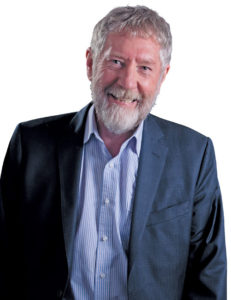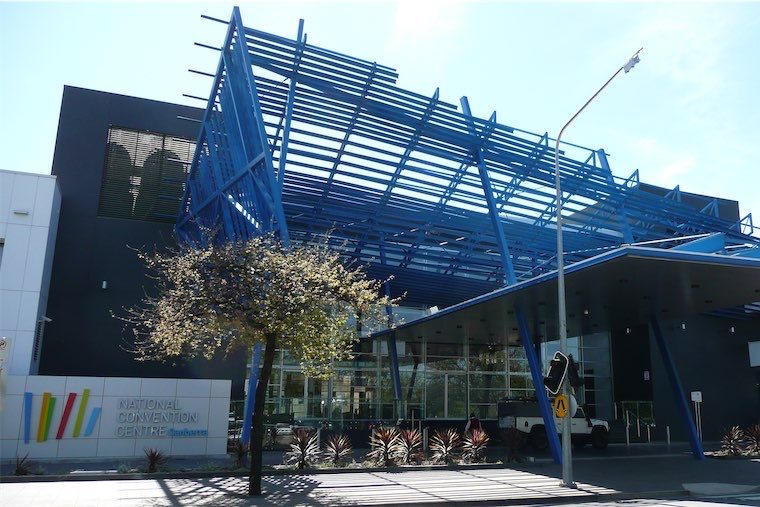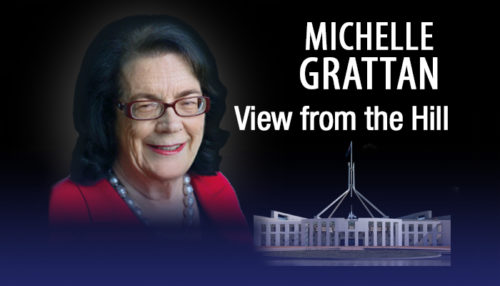“Having a vaccine available in the US and not available in Australia will put pressure on the Australian government. Public health is political and the race for a vaccine has intensified the politics,” writes MICHAEL MOORE.
THE next game in town will be lining up for a COVID-19 vaccination.

However, there are a couple of important questions that follow the Prime Minister’s announcement of a “letter-of-intent” deal with AstraZeneca: when will a safe and efficacious vaccine be ready? Who will be at the front of the line?
The announcement of the Australian deal came within days of the number of infections worldwide surpassing 20 million registered cases and more than 750,00 deaths.
It also followed a $2 billion deal done a month earlier by President Trump with Pfizer and BioNTech to supply up to 600 million doses of one of their four candidate vaccines to the US population.
At the risk of being a wet blanket, while we have treatments for HIV, we still do not have a vaccine. Granted, the coronavirus is quite different from the human immunodeficiency virus – and there are already human trials underway for a number of COVID-19 vaccines.
Russia’s President Vladimir Putin claims his country will produce the first vaccine. Cold war prejudices make it easy to dismiss the Russians, despite their scientists being the first to put a dog and then a person into space. The major concern regarding the Russian vaccine is their reluctance to publish all of the data.
The data around different phases of these trials are critical. The worst thing that any government could do, would be to undermine all other vaccines by circulating a vaccine with serious side effects or introducing a vaccine that is not particularly efficacious.
The World Health Organization (WHO) has identified that, after clean water and sanitation, immunisation is the most effective method of preventing the spread of infectious disease.
Immunisation includes all of the processes leading up to vaccination (or the delivery of the vaccine to the individual). It includes such things as policy development, government commitment, training, logistics, purchase and access.
The rush for a vaccine is not just about the protection of populations. There are also election pressures. Despite his blustering, denials and distractions, the US response under Donald Trump has been particularly poor. He has come under increasing pressure over his handling of the epidemic in the lead up to the November election.
Having a vaccine available in the US and not available in Australia will also put significant pressure on the Australian government. It is a similar story internationally. Public health is political and the race for a vaccine has intensified the politics.
Health workers, such as doctors and nurses, should be the first in line to access any safe and efficacious vaccine as it becomes available. The federal government has for years had an appropriate list identifying need. With COVID-19 being so challenging for the immune-suppressed, Aboriginal and Torres Strait Islanders and the elderly, particularly in nursing homes, we should hope that these groups are high in the order of priority.
Other frontline workers such as police and defence force personnel are also usually high on the list, as are our decision makers – our politicians.
COVID-19 is an international issue. If developed countries hog the vaccines, despite already having appropriate preventive measures in place along with effective hospitalisation and intensive care units, it will leave others much more vulnerable.
A scientifically sound random study of more than 7000 people in Mumbai found that more than half of the slum dwellers (57 per cent) had COVID-19.
A virus like this knows no borders. Mumbai represents a huge pool of infection amongst people who do not have a choice about whether or not they can go to work. Without work their families starve.
There can be little doubt that the same story will be repeated around the world in low and middle-income countries. Even from a selfish point of view, it is in the interests of Australians and other developed nations that such pools of infections be urgently addressed.
The global Coalition for Epidemic Preparedness Innovation (chaired by former Federal Department of Health Secretary Jane Halton) is concerned not only with the development of effective and safe vaccines as quickly as possible, but also with equity in the distribution globally. They are working with the COVAX group of the WHO whose aim is to accelerate the development and manufacture of COVID-19 vaccines.
More than 150 countries have been engaged to do just that – to work for development of vaccines as well as equitable vaccine distribution across the globe. While Australia has given in-principle commitment to join the WHO’s COVAX (with no money attached), it is time for a proper pledge.
Michael Moore is a former member of the ACT Legislative Assembly and an independent minister for health. He is chair of the International Immunization Policy Taskforce of the World Federation of Public Health Associations. The taskforce is made possible with an untied grant from Pfizer.
Who can be trusted?
In a world of spin and confusion, there’s never been a more important time to support independent journalism in Canberra.
If you trust our work online and want to enforce the power of independent voices, I invite you to make a small contribution.
Every dollar of support is invested back into our journalism to help keep citynews.com.au strong and free.
Thank you,
Ian Meikle, editor





Leave a Reply